Remembering and preserving in times of war - Cultural Guardians project visits the Viadrina
How do you protect cultural heritage in times of war, how does the work in museums continue when bombs fall and how do you prepare for reconstruction? Seven representatives from Ukrainian museums are currently travelling through Poland, Brandenburg and Berlin with questions like these in mind as part of the "Cultural Guardians" project. On 2 and 3 September, they met with Prof. Dr Paul Zalewski and the KIU – Competence Network Interdisciplinary Ukraine Studies at the Viadrina.
Hiding exhibits from bomb attacks, evacuating museums, looking after refugees instead of curating exhibitions - the seven Ukrainian women who have come to the Viadrina as part of the "Cultural Guardians" project have had a very unusual working routine in recent years since the full-scale invasion of Russia. And they are faced with the question of what challenges await them in the future and how they can overcome them. "One day this war will be stopped and I want to be prepared for that situation. How should we then explain to people what an evil neighbour we have, what our past is and what our future will be?" says Kateryna Hryshchenko, outlining the thoughts behind her participation in the project. The historian works for the Dmytro Yavornytsky National History Museum in Dnipro. The war has changed her view of her profession. "We historians were not prepared for the war. But people turned to museums during the crisis. We have a certain authority in this situation," she says.
gallery cultural guardians
Oksana Zhmurko, who is taking part in the project as a representative of the Andrey Sheptytsky National Museum in Lviv, is also reflecting on the change in self-image. In spring 2022, she experienced how her museum has become a place of mental solace and that museums offer opportunities to rediscover Ukrainian identity. She is travelling to Polish and German museums, scientific and cultural institutions with the aim of raising awareness of Ukrainian culture: "We need to be visible in Europe and culture is one way of achieving this. If you don't know someone, you don't help them."
She says this on the sidelines of a city tour, during which Prof. Dr Paul Zalewski explains Frankfurt city centre to the Ukrainians. At St Marien Church, the town hall and the Anger with its Soviet memorial, the Viadrina's monument preservation expert shows the ruptures in Frankfurt's history and how they have left their mark on the cityscape. It is these experiences in dealing with war, destruction and reconstruction that particularly interest Kateryna Hryshchenko. "I want to collect ideas about what Ukrainians can use in the future. It wasn't the first war in Europe and it won't be the last. We can use this experience," she says. An idea shared by Dr Susann Worschech from the KIU: "We are talking to the Cultural Guardians about how to create and maintain awareness of the need for reconstruction." The example of Frankfurt in particular shows how difficult it is to deal with the ruptures. "We also talk about how we can find ways to avoid papering over the fractures and to accept and embrace history. This approach tells us something about how we want to live in the future."
The patron of the project is Dr Manja Schüle, Brandenburg's Minister for Science, Research and Culture. She emphasised the excellent cooperation between the various project partners during the pilot phase of the project: "I am particularly pleased about the close collaboration between the European University Viadrina, the cultural institutions in Brandenburg, the Association of Monument Authorities and the Ukrainian museum network OBMIN." The Viadrina is the ideal partner on the scientific side: "The Competence Network Interdisciplinary Ukraine Studies brings together scientific expertise, practical knowledge and networking - all of which is needed to protect cultural assets," says Manja Schüle.
Welcoming the group to the Viadrina, Susann Worschech emphasised that she was particularly grateful for the exchange with practitioners because the KIU deliberately seeks exchange beyond academia: "It is important for us to get out of the ivory tower and find out from Ukrainians outside the universities where we can provide support and what knowledge is needed."
In addition to all the dialogue, networking, learning and sightseeing, the Ukrainians taking part in the program appreciate the absence of war, something that the German partners take for granted. "To be honest, it's just so good not to hear the air raid sirens all the time," says Kateryna Hryshchenko. She explains: "We have been experiencing too much tension for years. We are very tired and I am grateful for the opportunity to have a professional dialogue here in peace." Not forgetting the cultural perspective in the current situation is a concern that unites her with the other participants: "We have many problems in Ukraine and not all of them can be solved with money or weapons."
Cultural Guardians
In addition to the city tour of Frankfurt (Oder), the participants attended a workshop with Prof Dr Paul Zalewski on monument protection at the Viadrina and went on an excursion to Neuzelle. They had previously visited museums in Warsaw and Łódź. Following this study trip, the participants will spend one week visiting cultural institutions in Poland, Berlin and Brandenburg to accompany their colleagues and exchange ideas with them.
The project receives financial support from the Gerda Henkel Foundation, the Foundation for German-Polish Cooperation and the Wüstenrot Foundation.
Frauke Adesiyan
Back to the news portal
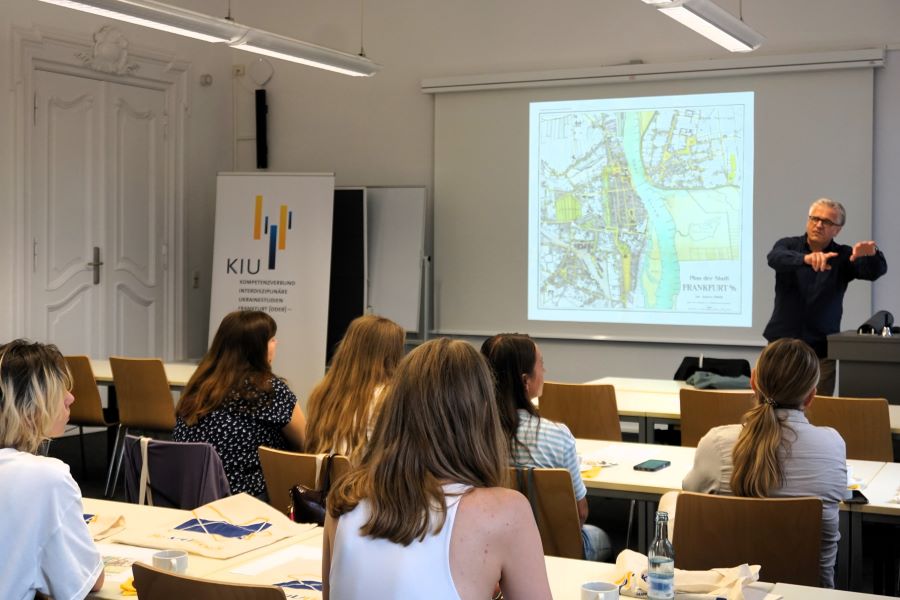
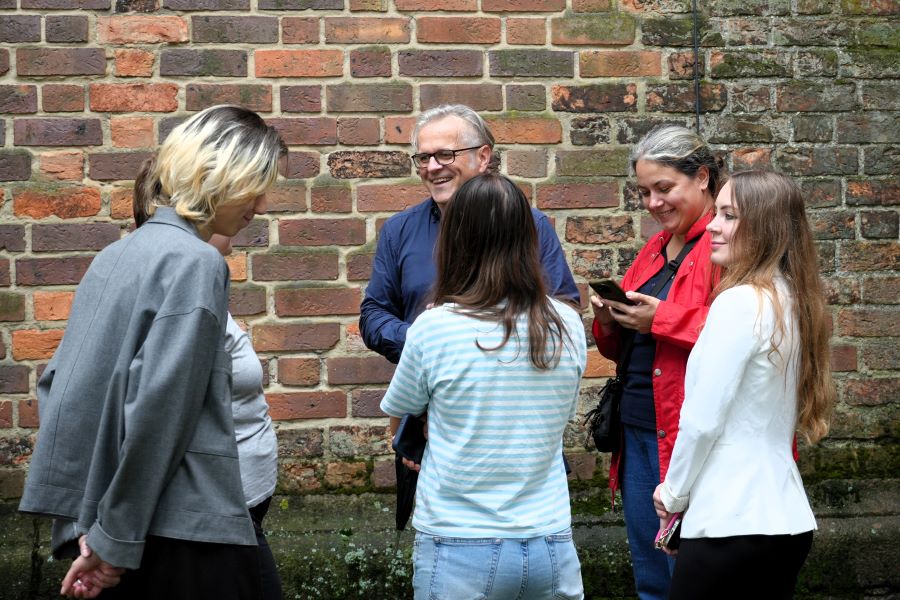
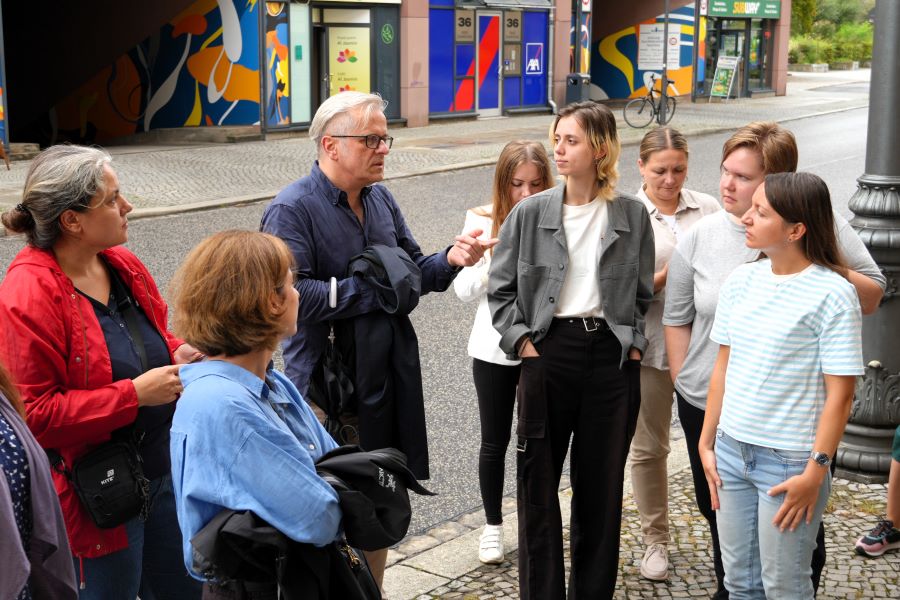
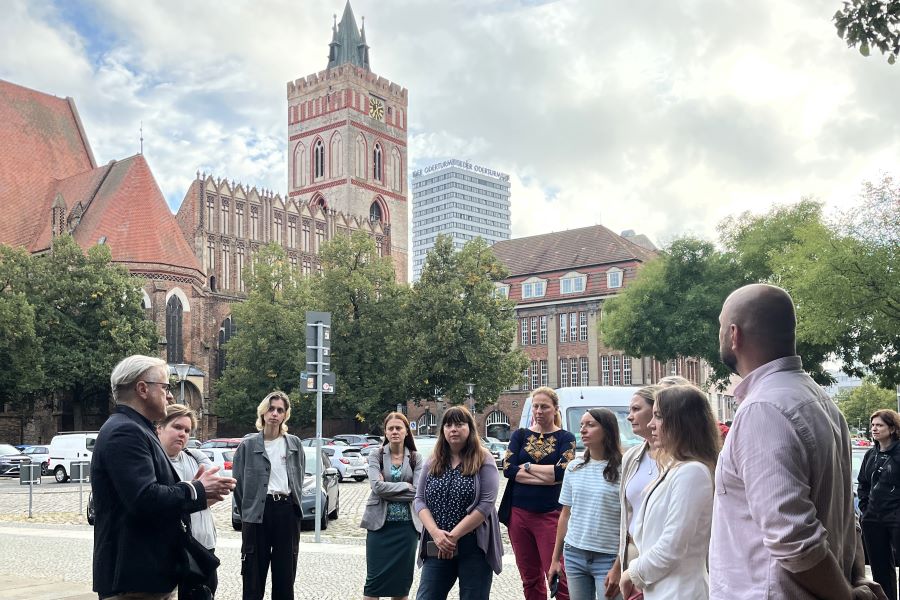
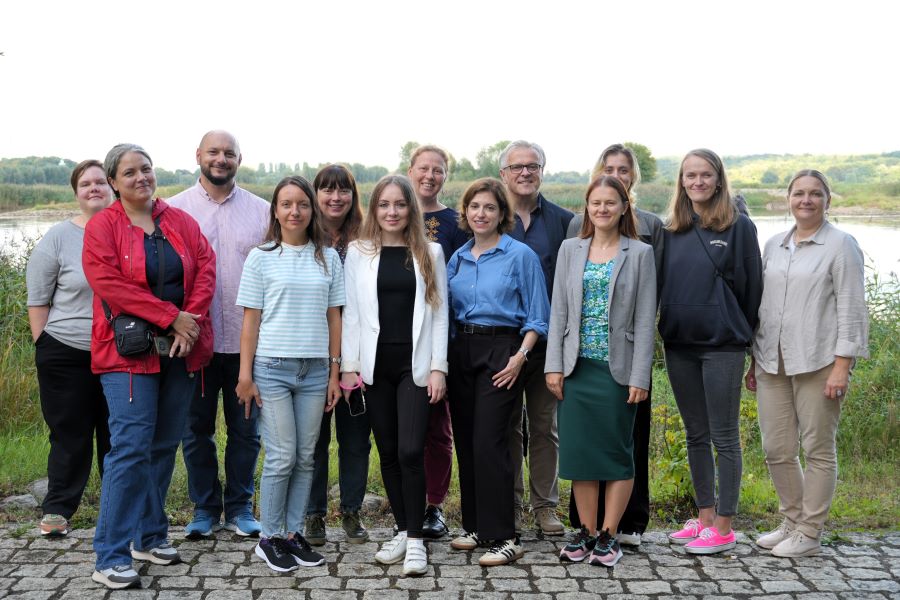
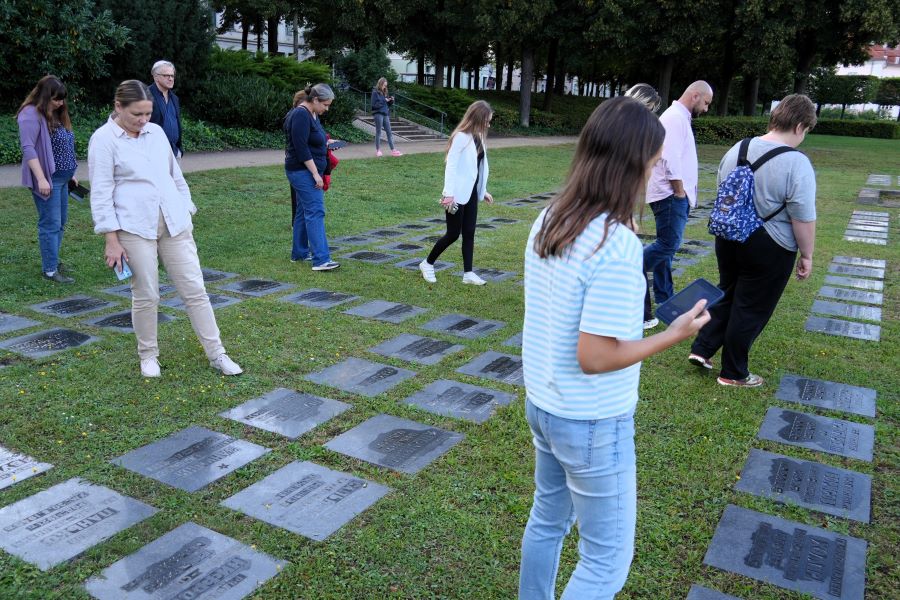
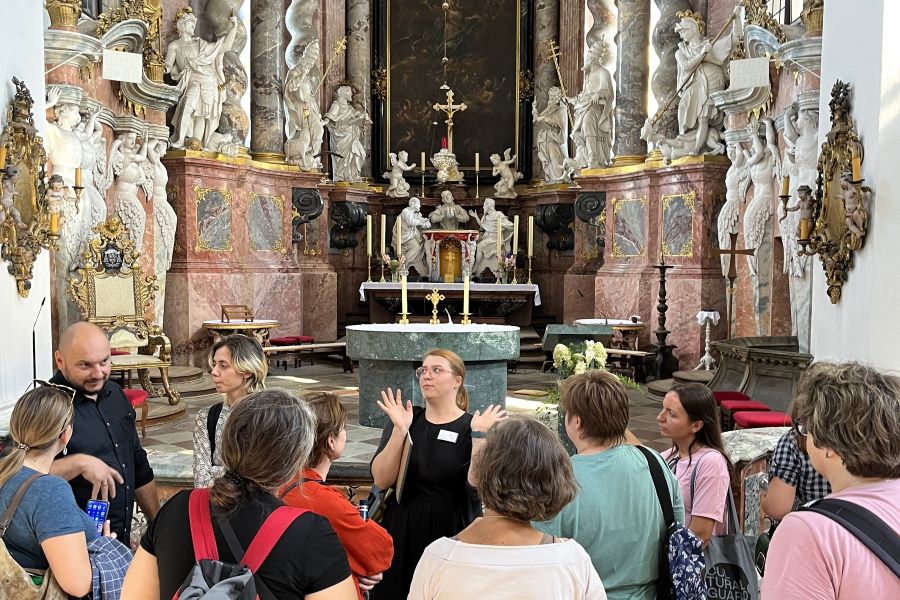
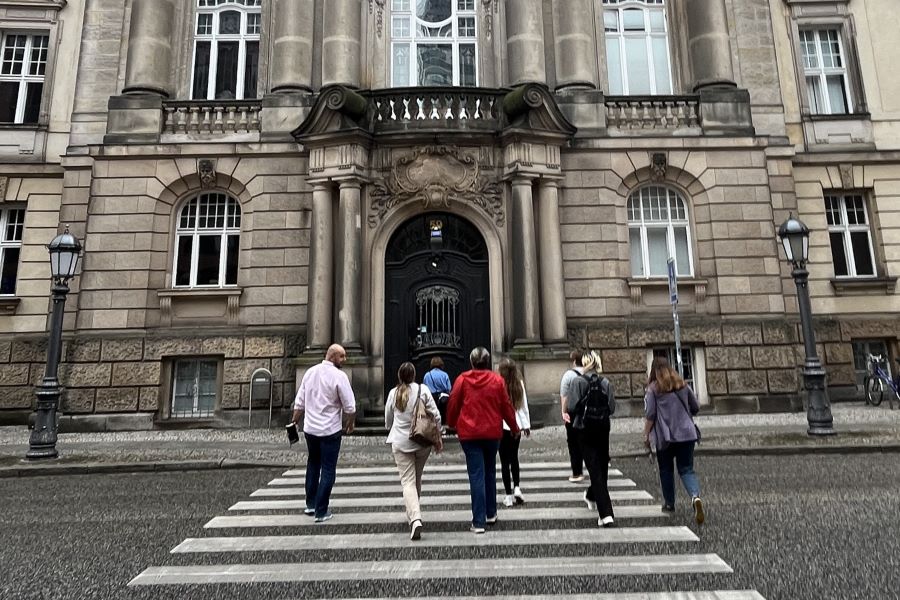
Share article: